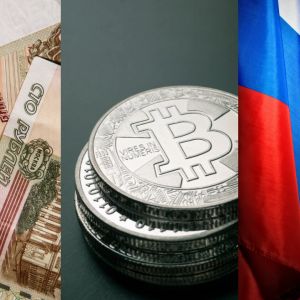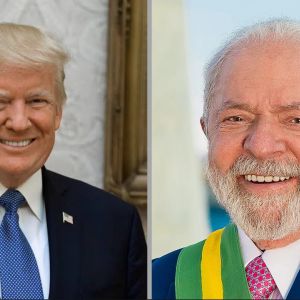More than half of Russia’s ‘qualified investors’ now have crypto stakes
3 min read
Over half of investors that Russia considers qualified enough to assign money into crypto assets have already purchased cryptocurrencies, a new survey shows. Most of those who haven’t tried it yet would like to do so in the future, according to the poll that also found that they prefer to convert Russian rubles into digital coins. 90% of qualified Russian investors attracted to crypto A sizable majority of Russian investors allowed to legally trade crypto have either acquired cryptocurrencies like Bitcoin (BTC) or plan to do that. That’s according to a recent study carried out amid a growing crypto turnover in Russia. The results published by the business daily Vedomosti this week show that 52% of qualified investors in the country already have experience with cryptocurrency instruments, the crypto news outlet Bits.media reported. Another 38% of the respondents haven’t tried crypto yet, but they are willing to do so. That means that a total of 90% of those in the studied sample signal interest in decentralized digital assets in terms of investment opportunities. The survey was conducted among 1,500 men and women over the age of 20 in Russian cities with a population exceeding 100,000 people. All participants are qualified investors with financial assets of at least 50,000 rubles (approx. $600) in their possession. Russia is yet to comprehensively regulate operations with cryptocurrencies, but its main financial regulators, the Bank of Russia and the Ministry of Finance, have made it clear they do not intend to admit every Russian to the crypto market. In March, the central bank proposed to permit a limited number of investors to buy and sell digital coins under a special “experimental legal regime.” The monetary authority insisted these should only be “ highly qualified investors .” To be granted this status, private individuals would need to prove annual income of at least 50 million rubles (over $600,000) and investments in securities or deposits exceeding 100 million rubles (more than $1.2 million), although these thresholds are still to be officially approved. While the Central Bank of Russia itself is not planning to add Bitcoin to its reserves, it announced in May that qualified investors are free to buy crypto derivatives, including securities with yields tied to cryptocurrency prices, as long as these are non-deliverable. A number of Russian financial institutions have since joined the race to offer clients such products . Among them is Russia’s largest stock market, the Moscow Exchange, which recently unveiled that it will launch a crypto futures contract based on its own new Bitcoin index . Russians keep buying Bitcoin, defying restrictive rules Despite the opposition of financial authorities in Moscow against allowing ordinary Russians to purchase cryptocurrencies, a recent estimate indicated that Russian citizens have already acquired well over $25 billion worth of crypto assets. Around 60% of the respondents in the new study quoted by the Russian press expect interest in cryptocurrency-based products to increase as a result of the growing offering of such instruments from established companies. They highlight the reliability of service providers as a key factor for their decisions (43%), along with low fees (24%) and convenient deposits and withdrawals (24%), noted analysts at the Russian investment firm BCS, who compiled the report. The survey also found that the main motives for getting hold of crypto instruments include long-term investments (57% of respondents), portfolio diversification (32%), and short-term speculation (25%). The authors detail further: “Currently, 33% of investors have 5-10% of their portfolios invested in instruments related to crypto assets.” A clear majority among the polled Russian investors, 78%, prefer the services of domestic platforms registered in Russia’s jurisdiction. Most investors, 85%, also like using Russian rubles to top up their investment accounts. Insufficient knowledge about digital assets and the high volatility of cryptocurrencies have been singled out as the main barriers to investing in crypto-linked financial instruments. Cryptopolitan Academy: Coming Soon – A New Way to Earn Passive Income with DeFi in 2025. Learn More

Source: Cryptopolitan



